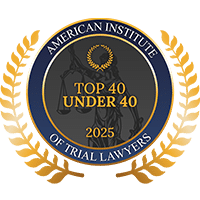Key Takeaways Elopement risk in nursing homes refers to residents leaving unsupervised and is influenced by factors like cognitive impairment and inadequate supervision. Differentiating elopement from wandering is essential, as both behaviors require tailored interventions to enhance resident safety. Effective prevention strategies include adequate staffing, secure environments, individualized care plans, and the use of monitoring […]
Key Takeaways The high costs of nursing home care pose significant financial challenges for families, necessitating proactive planning and an understanding of available financial aid options. Nursing home residents face various challenges, including limited living space, social isolation, and restricted freedoms, which can adversely affect their quality of life. Active family involvement and advocacy are […]
Key Takeaways The average settlement for nursing home neglect is approximately $406,000, with significant variations based on case severity, sometimes exceeding $1 million in wrongful death cases. Settlement amounts are influenced by factors such as the severity of neglect, type of case, extent of injuries, and the nursing home’s insurance coverage. Legal representation is essential […]
Key Takeaways Identifying poorly rated nursing homes in Georgia involves evaluating inspection reports, compliance with regulations, and performance metrics, with a focus on resident satisfaction and health outcomes. Common violations in Georgia nursing homes include medication errors, insufficient staffing, poor hygiene, and neglect, all of which significantly impact resident well-being. The Medicare Five-Star Quality Rating […]
Key Takeaways Gravely injured individuals face serious but non-life-threatening conditions, with timely medical care significantly improving recovery chances compared to critically injured patients. The distinction between grave and critical injuries lies in the immediacy of life threats, with grave injuries providing a window for recovery, while critical injuries require urgent intervention. Legal representation is essential […]
Key Takeaways Understanding liability, defined as fault and negligence, is crucial in determining legal responsibility in car accidents, with essential evidence such as police reports and witness statements. Auto insurance is a key factor in managing financial responsibilities post-accident; states have minimum liability insurance requirements that affect lawsuit outcomes, while optional coverages can offer additional […]
Key Takeaways Uninsured motorist coverage offers financial protection for accidents involving uninsured or underinsured drivers, covering medical expenses and other damages. You can sue an uninsured driver for damages, but it’s essential to assess their financial situation as recovery may be challenging if they lack assets or income. Exploring alternative compensation methods, such as government […]
Key Takeaways In Georgia, accidents resulting in injury or significant damage must be reported to the police, leading to a formal accident report that is crucial for legal and insurance claims. Disputes over fault, inadequate settlement offers, and cases involving uninsured drivers often necessitate court intervention in car accident claims. Legal representation significantly improves the […]
Key Takeaways In Georgia, victims of hit-and-run accidents have two years to file personal injury lawsuits, but felony charges extend this period to four years. Factors such as the discovery rule and tolling due to ongoing criminal prosecution can influence the statute of limitations and provide additional time for victims to file claims. Missing the […]






